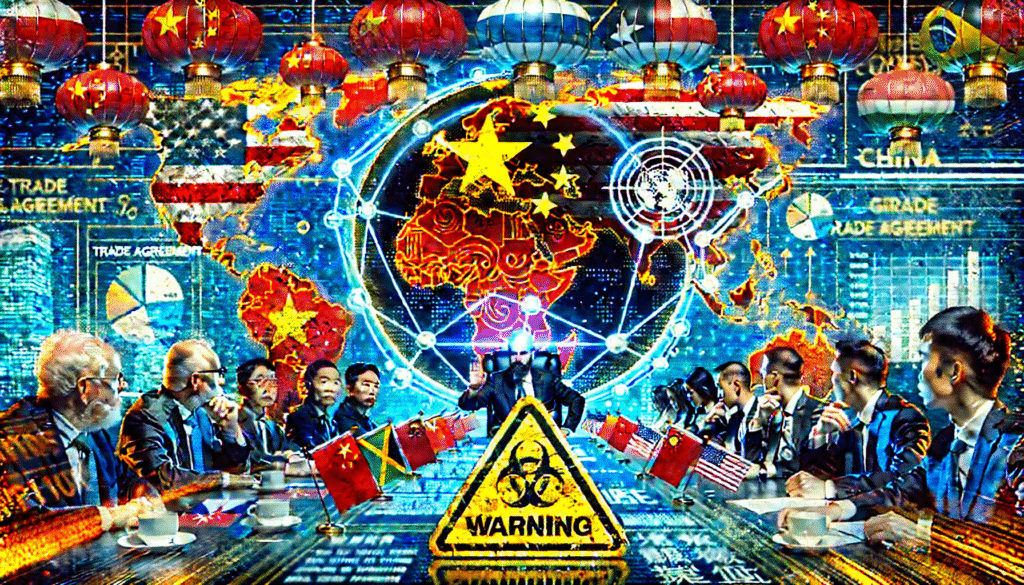Washington is believed to be urging nations to reduce trade with China in order to stop major additions to US tariffs. Beijing has pledged “countermeasures” against trade partners who are acting against their own economic interests.
Monday China has threatened to impose sanctions on countries that “appease” the United States by negotiating agreements on economics to Washington at Beijing’s cost.
Based on the Bloomberg report, the alert coincides to US efforts to encourage other nations to cut down on trade with China should they want to avoid major changes in US taxes on exports announced by the president Donald Trump earlier this month.
As per the Trump administration, a number of nations are seeking to negotiate trade agreements to avoid the new US sanctions from taking effect and affecting trade with the largest economy in the world.
Other than China who is facing US tax levy up to 145 percent, the tariffs have been put in limbo for 90 days for all other nations. Beijing was quick to respond by increasing US import taxes up to 125%.

Chinese’s Chinese Commerce Ministry released a statement Monday stating that it will not tolerate “appeasement is not a way to bring the peace of China and compromise will never be honoured. “
The minister warned countries not to put “temporary selfish interests at the expense of others,” ministers warned. It could “ultimately be a failure on both sides” and result in damage to others. “
“China firmly opposes any party reaching a deal [with the US] at the expense of China’s interests,” the statement added.
The text also said that it was sure Beijing will “resolutely take reciprocal countermeasures” against any other country who behaves like Beijing.
Over fifty countries work in partnership with Jamieson Greer. Greer is the US trade official told reporters in the month preceding that he would not support the policy that Trump thinks will aid in closing the huge trade gap between the US and the rest of the world. Negotiations between the two countries continued in the wake of. Japan is considering increasing US imports of rice aswell the soybeans, in an effort to implement the agreements that was reached in the talks with Washington.
In addition to joint ventures on ships and pipelines, South Korea claims they have a strategy that includes an innovative US Liquified Natural Gas (LNG) purchase.
President of Taiwan, Lai Chin-te, has not revealed the tariffs as Taiwanese businesses want to expand US investments to allow an advantageous agreement.
Indonesia has a different view plan to decrease imports from countries other than their own and also increase US purchasing of food products as well as other items.
On Monday morning, US vice president JD Vance begins an eight-day trip to India. Both countries are currently engaged in negotiations for a trade agreement.
Levies for retaliation against US imports of $23 billion are being removed from the European Union. This will greatly aid in the ongoing talks.
Trump said this week that the negotiations on tariffs are under progress even if the tensions between Washington and Beijing are rising. “Yeah, we are talking with China,” Trump said to reporters at Oval Office. “I believe we will reach a quite reasonable compromise with China.”
Beijing has promised the “to the end” struggle in the trade battle; it has yet to announce the discussions.

